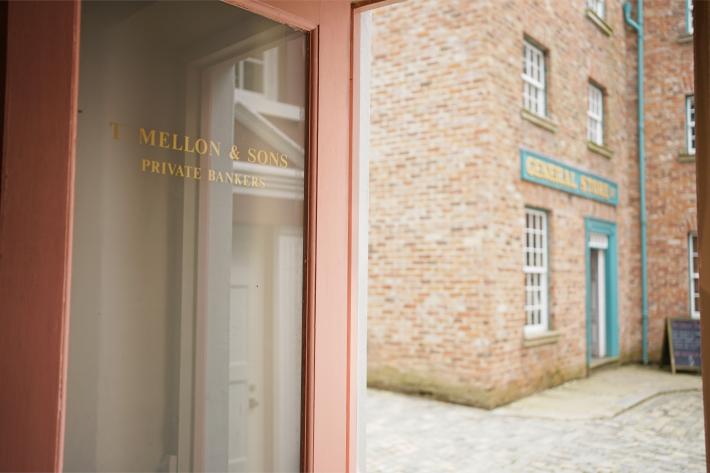life in america
New Foundations
The construction of their own log farmhouse signalled that the Mellons had truly arrived in America. The style of the farmhouse reflected many aspects of American culture and middle-class comforts, from the materials and layout of the house to the purchased - not homemade - goods. The ability to purchase something, such as a dress, instead of making it by hand, was a luxury reserved for those with some disposable income.
[I]n less than a year we had as fine a six-roomed dwelling as the best of our neighbours...And in less than seven years from the time of our possession we had the farm in first rate order and were beginning to accumulate money. But as I was now twelve years of age, I may consider my boyhood ended.
Thomas Mellon
Thomas Mellon and His Times
Life at the Farmhouse
Although the larger, newly built house with acres of fertile land was a move upwards for the Mellons, it was a working farm and its upkeep was hard work.
In the early years of their life at the farmhouse, Thomas Mellon - then around 10 - helped out around the farm. When he began his formal education in his teenage years, it still came second to his work on the farm. While Thomas would look back on his childhood fondly, he did note that his desire to learn and read left him feeling somewhat lonely, and yearning for more opportunities to study.
Thomas Mellon's Aspirations
According to his own mythologising, Thomas read the autobiography of Benjamin Franklin at 14 and began to dream of a future beyond farming. Although he had expressed his desire to go on to further studies, his father was not supportive of any path but farming.
Thomas was undecided until the last moment, when his father went to Pittsburgh to purchase a farm for Thomas. According to his autobiography, he ran after his father and the neighbour from whom he was going to purchase the farm - a distance of ten miles - and managed to reach them before the deal was struck. At that point, his mind was made up: he would pursue a career - in what industry, he did not yet know - and seek his fortunes outside of the farm.
For Thomas, an education and a white-collar career was the only path he saw to continued upward mobility in America. He had been influenced by his studies and his visits to Pittsburgh, where he saw the mansions of industrialists and determined that there were few ways to achieve that level of comfort - and that farming, while a noble pursuit in which one could achieve independence and happiness, was not his path in life.
